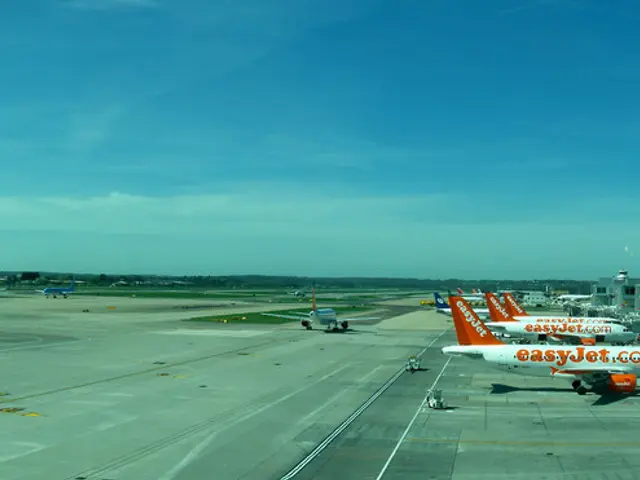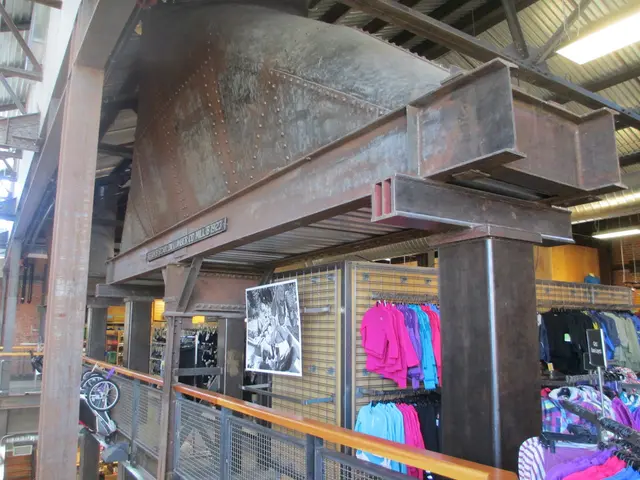NJ Transit prepares to enhance Transit services prior to implementing fare increase and significant events
Article:
From Camden to the Jersey Shore, resident views on life in New Jersey matter! Let us know what you'd like our website News to cover about NJ Transit.
Surviving Last Summer's Headaches
NJ Transit grappled with numerous headaches last summer - over 1,800 trains were canceled due to Amtrak's infrastructure issues, adverse weather, or mechanical problems. Despite the chaos, current CEO Kris Kolluri vows those days are behind us, promising improved service for passengers.
"We're buckling down to ensure riders have a smoother experience," stated Kolluri. "We're not just focusing on our daily commuting service; we're also hammering away at preparations for those major events when a mass transit system must deliver."
A New Sheriff in Town
When our News team spoke with Kolluri in late March, NJ Transit's first strike in forty years was still looming on the horizon. Thankfully, the strike was swiftly resolved in just three days. However, former union members - the NJ Brotherhood of Locomotive Engineers and Trainmen (BLET) – are yet to ratify the tentative agreement.
Kolluri, who took over as head of New Jersey's public transit agency late last December, highlights 2025 as an exceptional year, specifically pointing to the upcoming FIFA Club World Cup matches at Lincoln Financial Field and MetLife Stadium. He works tirelessly to ensure the system runs flawlessly during the event. "The secret to success is threefold: focus on customer service, guarantee reliable service, and provide state-of-the-art equipment," Kolluri insists.
Aging Infrastructure and Big Promises
The "summer of hell" in 2021 exposed serious flaws in the Northeast Corridor, owned by Amtrak, mainly due to problems with its catenary wire system. Kolluri claims that Amtrak has put forth a plan to NJ Transit to rectify these issues ahead of the summer of 2022.
"We're working with Amtrak to make sure they address the necessary improvements to the corridor so we don't experience another devastating summer," Kolluri explains. "It's no secret that Amtrak is managing a century-old infrastructure."
Though Amtrak controls the rails, NJ Transit owns the trains that run on the network. Kolluri emphasizes the agency's efforts to fix and replace train cars as promptly as possible. They're expecting their first delivery of new multi-level cars in the first quarter of 2026.
"We've made a commitment to continuously improving the system, an improvement it desperately needs after decades of neglect," Kolluri adds.
Infrastructure Renewal and Expansion
The recently approved $767 million five-year capital budget targets purchasing 1,000 new buses, apart from improvements to the River Line light rail and the Atlantic City Line.
Assemblyman Clinton Calabrese, chairman of the Assembly Transportation and Independent Authorities Committee, states, "NJ Transit is ready as it ever will be, acknowledging the issues it faces. But let's not forget we're dealing with old infrastructure, which adds to the pressure of the system."
Fare Hikes and Performance Expectations
Gov. Phil Murphy reiterated his commitment to revitalize NJ Transit in 2019. However, riders express disappointment, as promised service improvements remain elusive, Talia Crawford, advocacy and organizing manager at the Tri-State Transportation Campaign points out.
"They're soon to experience a 3% fare hike this coming July, yet there are no significant service improvements in sight, like increased frequency, improved service, or visible infrastructure enhancements that commuters can observe during their daily journeys," Crawford laments.
Last July, a 15% fare hike took effect, marking the first such increase in about a decade. The agency's board also approved an annual 3% fare increase starting this year.
Kolluri acknowledges the time gap between fare increases and cites Agency's two largest cost drivers - Access Link and the 20 commuter bus routes acquired from Coach USA after the company filed for bankruptcy last year.
"These two services are not negligible; in fact, they're critical for us," Kolluri indicates.
Finding a Permanent Source of Funding
Crawford credits Murphy for implementing the Corporate Transit Fee, which taxes the state's most profitable corporations a 2.5% levy to fund NJ Transit. However, with the fee scheduled to expire in 2028, Crawford recommends implementing a permanent, dedicated funding source to safeguard NJ Transit's future.
"There's a need for more than just the Corporate Transit Fee to keep NJ Transit running well into the future," Crawford asserts.
Want to stay informed on NJ Transit updates? Let us know your preferences, and we'll keep you in the loop!
Facebook | Twitter | Email
Empower yourself with our Terms of Service | Privacy Policy
Stay Connected | Facebook | Twitter | Email
Support us as we bring you fact-based, in-depth journalism. Donate today and help us continue our mission!
Facebook | Twitter | Email
- The industry and finance sectors must collaborate to secure long-term funding for the construction of new multi-level cars for NJ Transit, as seen in the recently approved $767 million five-year capital budget.
- To ensure a successful public-transit system during major events like the FIFA Club World Cup, NJ Transit CEO Kris Kolluri emphasizes focusing on customer service, guaranteeing reliable service, and providing state-of-the-art equipment.








